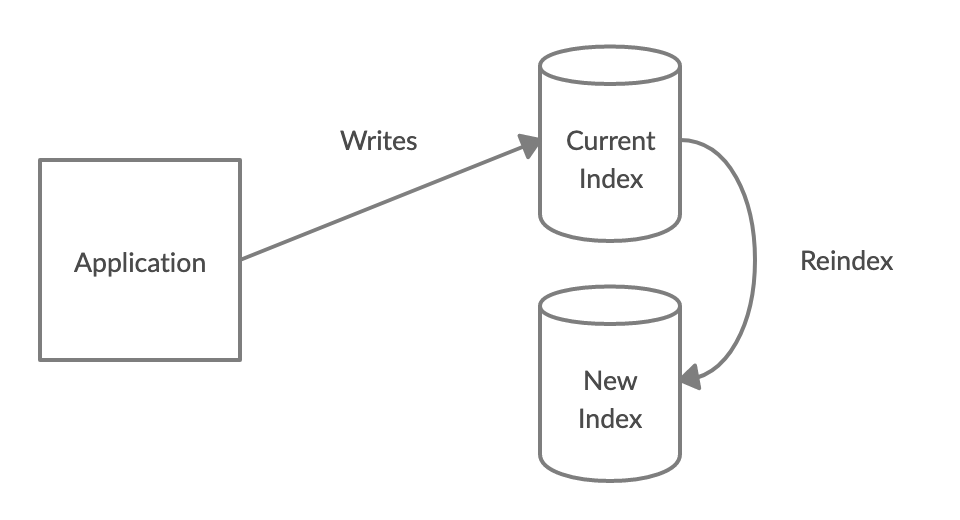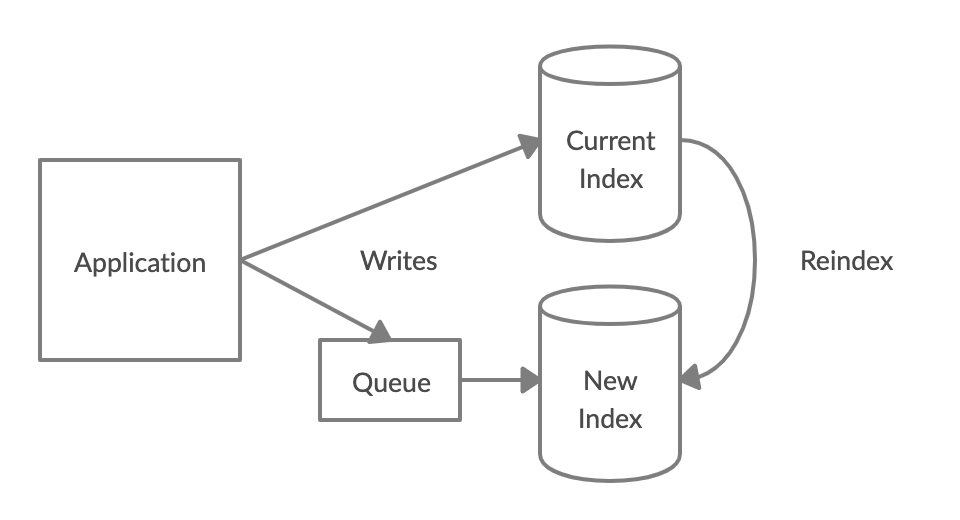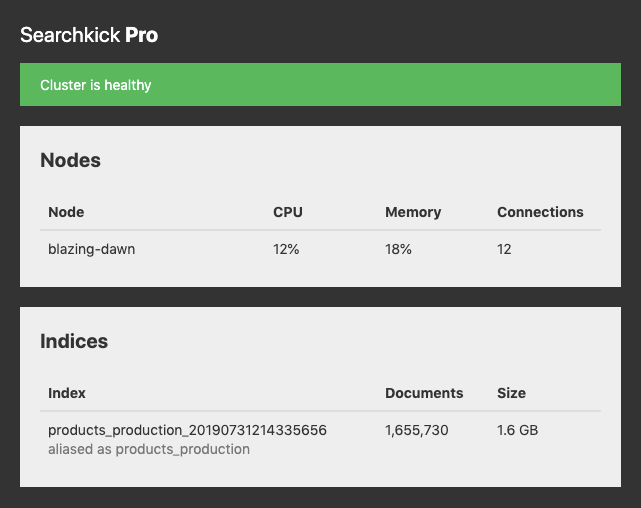Introducing Searchkick Pro
Note: Searchkick Pro is no longer available.
Searchkick makes it easy to add intelligent search to Rails applications. It was launched in 2013 back when Elasticsearch 0.90 was all the rage. To date, there have been almost 3 million downloads.
Today, I’m happy to announce the launch of Searchkick Pro, an extension for Searchkick with a number of great features. The most notable are:
- Reliable reindexing
- Metrics
- A web dashboard
Let’s dive into each of them.
Reliable Reindexing
Searchkick uses the zero downtime indexing approach described in the Elasticsearch Guide. However, if your application performs writes during the reindex process, they go to the current index and may not be applied to the new index. This can cause the index to get out-of-sync with the database, leading to a poor search experience.
Searchkick Pro keeps track of these updates and applies them before promoting the new index.
Before

After

Metrics
Performance is important for search. Searchkick Pro gives you more visibility into performance at the application level. This makes it easy to keep an eye on performance and see how tweaks change it over time. Send metrics to Datadog, Librato, and any other service that supports StatsD.
Dashboard
Searchkick Pro also provides a dashboard for more visibility into your cluster. View the real-time status of indices and nodes to check for issues and see how reindexes are progressing.

What Else?
Finally, Searchkick Pro comes with a performance check to make sure your application is configured for high performance, and all customers have access to priority support.
Searchkick Pro is available now for $950/year. Get a full refund within 14 days if you’re not happy for any reason.
Get Searchkick Pro today!